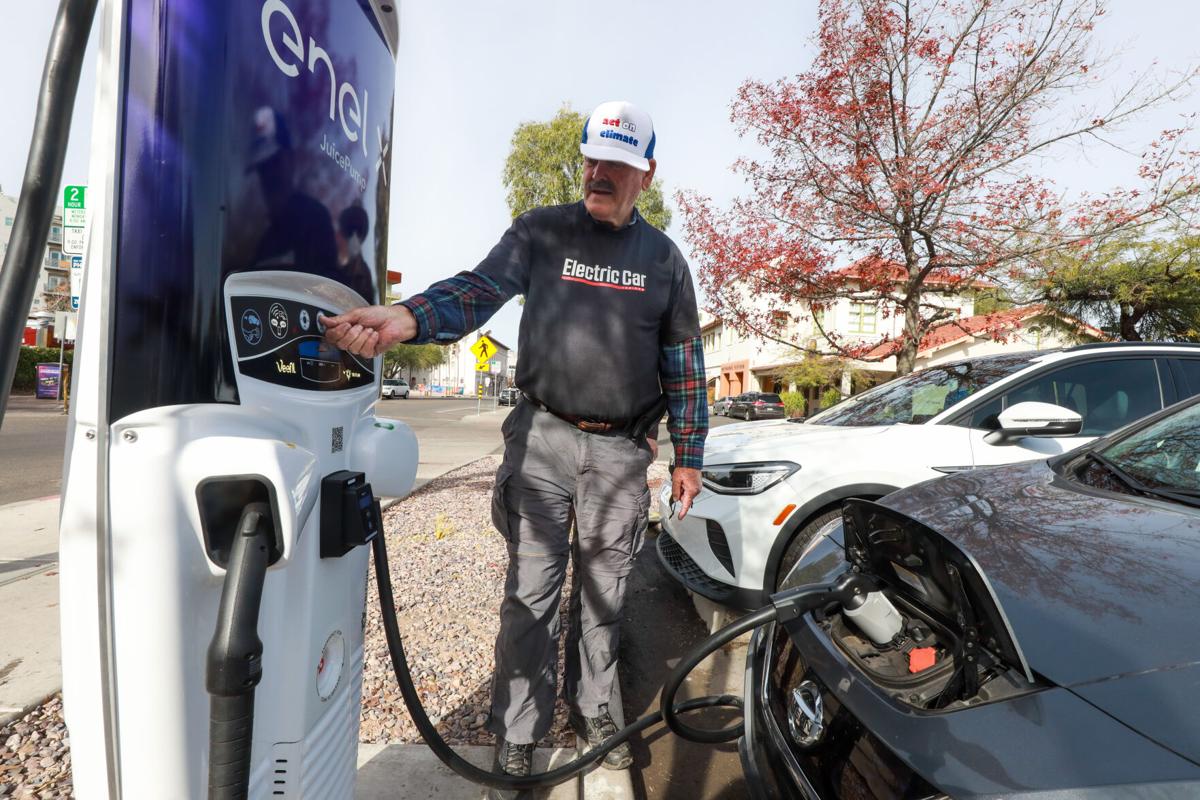Tucson-area businesses that use electric vehicles, schools and electric-bike enthusiasts will get new support from Tucson Electric Power Co. after state regulators approved its latest EV plan.
Customers of TEP’s sister utility, UniSource Energy Services, in Santa Cruz and Mohave counties also will be offered new EV incentives, after the Arizona Corporation Commission approved “transportation electrification” plans for both companies on Thursday, Nov. 10.
Under TEP’s plan, the utility was authorized to spend about $34.8 million over three years on existing rebate programs for charging equipment at homes and businesses and to add new programs to support projected EV growth.
The EV incentive offerings from TEP and UES will be rolled out over the next three years, with information posted online at tep.com and uesaz.com and distributed through customer communications as the programs become available, said Joe Barrios, spokesman for both utilities.
The commission approved the EV programs proposed by TEP and UES on 3-2 votes, with ACC Chairwoman Lea Márquez Peterson, a Tucson Republican, joining Democrat members Sandra Kennedy and Anna Tovar voting in favor and Republicans Justin Olson and Jim O’Connor opposing the plans.
TEP launched a home EV charger rebate program and “super off-peak” overnight charging rates in 2019, adding rebates for commercial installations in 2020 and special rates for business fleet charging and commercial charger operators last year.
While continuing existing EV rebate programs, TEP’s latest plan adds several programs, including a pilot “managed charging” program to help EV owners adjust their charging behavior to avoid higher costs (to come in 2024); and a “micro mobility” program to provide rebates for the purchase of electric bicycles (2023).
New pilot commercial programs include:
Incentives for public transit fleets to support infrastructure for 45 buses;
A school-bus program offering bus and charger purchase incentives, fleet phase-in planning and the installation of seat belts;
A rebate program for companies such as Uber and Lyft to develop “charging hubs” to serve multiple users (2025);
Rebates for nonprofit senior transportation services, job-training program participants and lower-income customers (2024).
Under the UES plan, with a three-year budget of $1.3 million, the utility plans to continue its existing home EV charger incentive programs and offer new, super off-peak rates for overnight home charging and EV charger incentives for commercial and lower-income customers and public fleets, as well as special rates for commercial EV fleet charging.
Learn how Tucson public transit provider Sun Tran is electrifying its bus fleet.





